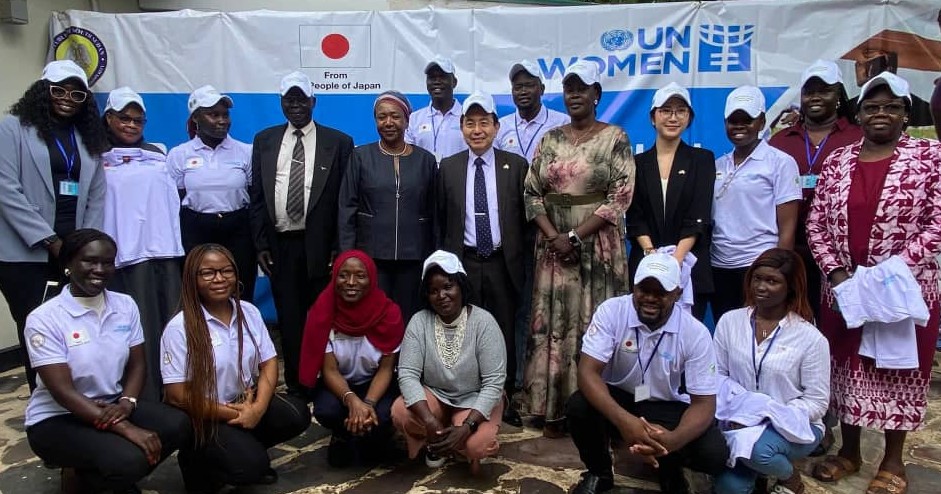
More than 4,000 displaced women and girls in Upper Nile State are set to benefit from a new humanitarian initiative jointly launched by UN Women South Sudan and the Government of Japan.
With a budget of $750,000 funded through Japan’s FY2024 supplementary allocation, the one-year project will be implemented in Malakal and Renk counties—areas hosting large numbers of returnees, refugees, and internally displaced persons (IDPs), many of them fleeing conflict in neighboring Sudan.
The project, titled “Enhancing Resilience of Women and Girls in Transit and IDP Sites within Upper Nile State,” aims to provide gender-responsive services, including protection from gender-based violence (GBV), access to dignity kits and other non-food items, and support for livelihoods such as VSLA farming and drip irrigation systems.
UN Women Country Representative Ms. Delphine Serumaga stressed that displaced women and girls face unique and severe challenges in crisis settings.
“This initiative is a lifeline for women and girls in desperate conditions. It’s also a step toward building their leadership and resilience in peace and recovery processes,” she said.
Speaking at the launch in Juba, Japanese Ambassador Odagiri Toshio reaffirmed his country’s long-standing support for women’s empowerment.
“We are committed to building a society where women shine. In South Sudan, that means standing with women and girls impacted by displacement and conflict.”
With generous support from the Government of Japan, several impactful projects have been successfully implemented across South Sudan, directly improving the lives of internally displaced persons (IDPs), women, and host communities.
Among the key achievements are: Renovation of two health facilities in Juba and Bentiu, enhancing access to essential healthcare services, and vaccination of over 1,000 IDPs and host community members against COVID-19, boosting public health protection.
Others includes installation of solar power at the Pariak Women Empowerment Center to ensure sustainable energy for training and services; provision of Non-Food Items (NFIs) to displaced women and girls, addressing immediate basic needs, livelihood support for IDPs, including the provision of greenhouses and drip irrigation technology and, promoting self-reliance and food security and distribution of dignity kits to women and girls, reinforcing health, hygiene, and protection.
These efforts reflect Japan’s continued commitment to supporting peace, recovery, and resilience-building in South Sudan.
The project is implemented in collaboration with two national organizations, including a women-led partner, to ensure community ownership and culturally grounded approaches.
Running from March 2025 to March 2026, the program is part of Japan’s broader $7 million investment in UN Women South Sudan since 2015—supporting peacebuilding, humanitarian aid, and gender equality in multiple states.
With South Sudan facing worsening displacement and over 5.4 million people in need of aid, UN Women is calling for stronger collaboration and secure humanitarian access to protect the most vulnerable, especially women and girls.

